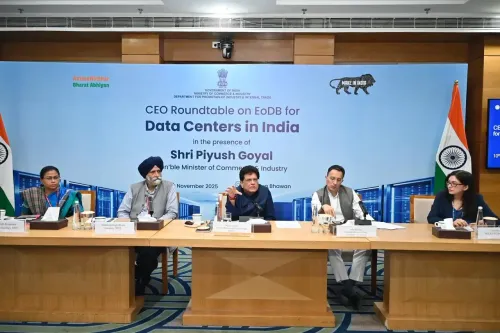Could GenAI Transform Over 40 Million Car Purchases by 2030?

Synopsis
Key Takeaways
- Generative AI is set to influence millions of car purchases by 2030.
- Automakers integrating GenAI could see a 20% increase in sales.
- Companies slow to adapt risk losing up to 15% revenue.
- GenAI assistants will provide unbiased, brand-independent advice.
- Focus will shift from brand loyalty to practical factors like pricing and emissions.
New Delhi, Sep 24 (NationPress) Generative AI (GenAI) is poised to revolutionize the car-buying process, with projections indicating that over 40 to 50 million car transactions globally may be influenced by AI-driven assistants by the year 2030, according to a recent report.
The analysis conducted by Boston Consulting Group (BCG) in collaboration with OpenAI reveals that automotive manufacturers who promptly incorporate GenAI into the customer experience could witness a remarkable 20 percent increase in sales by 2030.
Conversely, companies that hesitate to adapt may face a potential 15 percent revenue decline, as consumers gravitate towards competitors that provide more fluid, AI-enhanced experiences, as noted in the study titled ‘Will AI Become the Best Car Sales Advisor?’.
Natarajan Sankar, the India Leader for Automotive and Industrial Goods Practice at BCG, remarked that GenAI will not just drive sales but will also restore customer trust by rendering the car buying process more transparent, seamless, and personalized.
He emphasized that in rapidly evolving markets like Asia, the pace of GenAI adoption will determine which manufacturers dominate the market.
The report indicates that GenAI assistants will serve as impartial, brand-agnostic advisors, aiding customers in vehicle configuration, financing comparisons, and even arranging test drives.
This transformation may diminish traditional brand loyalty, as consumers prioritize practical elements such as electric vehicle range, pricing, and lifecycle emissions over brand reputation.
To maintain a competitive edge, automakers should enhance their visibility on AI-driven platforms, collaborate with multi-brand marketplaces, and develop proprietary AI assistants to provide hyper-personalized purchasing experiences.









